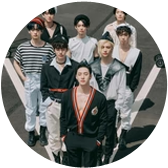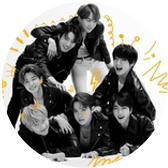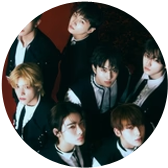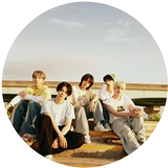4 Generations of K-Pop Explained
4 Generations of K-Pop Explained
K-pop, short for Korean pop, has taken the world by storm in the past few years. It's catchy beats, elaborate music videos, and synchronized dance routines have captivated audiences globally. K-pop has also given birth to a new generation of music stars, each with their unique style and sound. In this article, we'll explore the four generations of K-pop and how they have evolved over time.
First Generation (1992-2002)
The first generation of K-pop began in 1992 with the debut of Seo Taiji and Boys. They introduced a new style of music that mixed traditional Korean music with hip hop, rap, and rock. Their songs tackled social issues and were highly political, a departure from the upbeat and bubblegum pop of the time.
Other first-generation K-pop groups included H.O.T., S.E.S., and Fin.K.L. They focused on ballads and love songs, catering to a young and predominantly female audience. The first generation of K-pop laid the groundwork for what was to come, introducing new music styles and breaking traditional norms.
Curious about the origins of K-Pop? Don’t miss out on our full guide to the 1st generation of K-Pop. where it all began!
The most notable groups of this generation are:
- Seo Taiji and Boys
- H.O.T
- S.E.S.
- Fin.K.L
Second Generation (2003-2012)
The second generation of K-pop began in 2003 with the debut of TVXQ and BoA. This generation saw the rise of the 2nd gen idols, a term used to describe young performers who are trained extensively in singing, dancing, and performing. The second generation of K-pop idols was heavily influenced by the Korean Wave or Hallyu, which saw an explosion of Korean dramas, movies, and music in Asia.
The second generation of K-pop idols included Super Junior, Girls' Generation, BIGBANG, 2NE1, and SHINee, among others. Their music was characterized by catchy beats, synchronized dance routines, and elaborate music videos. The second generation of K-pop idols also began to gain global recognition, with many groups touring extensively in Asia and beyond.
The most notable groups of this generation are:
- Super Junior
- Girls' Generation
- SHINee
- 2NE1
Third Generation (2012-2019)
The third generation of K-pop began in 2012 with the debut of EXO and BTS. This generation saw a further expansion of the K-pop industry, with more groups debuting and achieving international success. The third generation of K-pop idols focused on more complex and mature themes, exploring topics such as mental health, self-love, and social issues.
Other notable groups from the third generation include best kpop band
BLACKPINK, TWICE, SEVENTEEN, and Red Velvet. This generation also saw the rise of social media, with K-pop idols connecting with fans directly through platforms such as Twitter, Instagram, and YouTube.
The most notable groups of this generation are:
- EXO
- BTS
- BLACKPINK
- TWICE
- SEVENTEEN
Fourth Generation (2019-Present)
The fourth generation of K-pop Gen 4 began in 2019 with the debut of ITZY and TXT. This generation saw a further diversification of the K-pop industry, with more groups debuting and exploring different music styles. The fourth generation of K-pop idols also saw the rise of solo artists, with many idols pursuing solo careers alongside their group activities.
Other notable groups from the fourth generation include Stray Kids, ATEEZ, ENHYPEN, and NCT. This generation also saw the rise of virtual concerts and online fan events, with K-pop idols adapting to the challenges of the COVID-19 pandemic.
In conclusion, the four generations of K-pop have each contributed to the growth and success of the industry. From the socially conscious music of the first generation to the global success of the third generation and the diversification of the fourth generation, K-pop has continued to evolve and captivate audiences worldwide.
The most notable groups of this generation are:
- ATEEZ
- ENHYPEN
- ITZY
- IVE
- STRAY KIDS
- TXT














